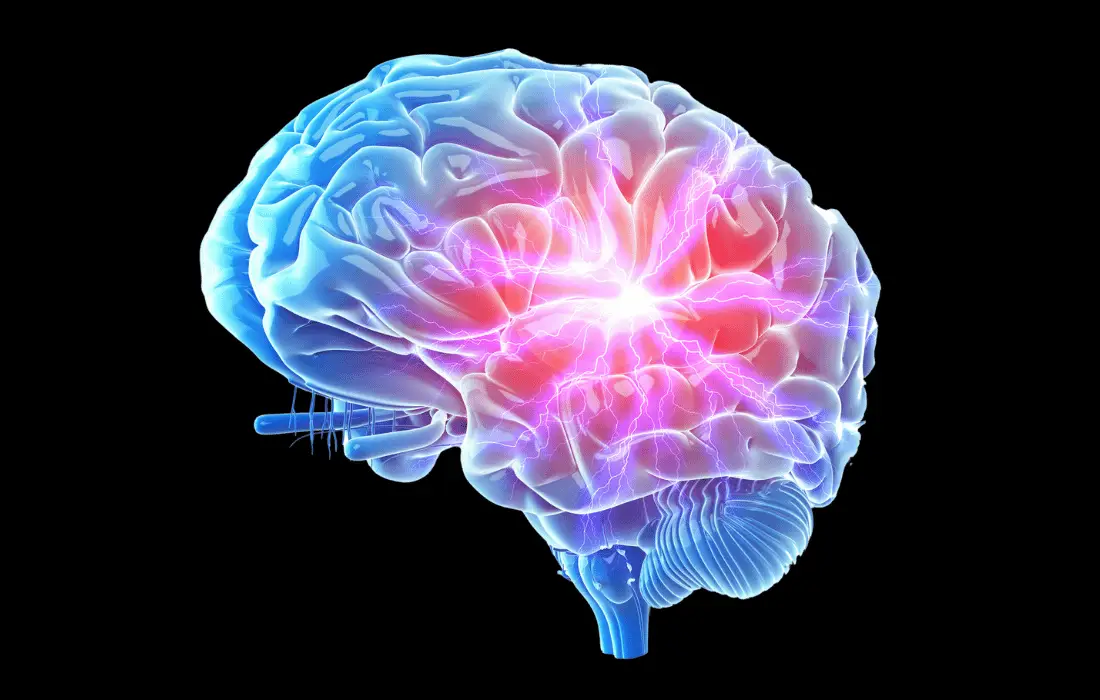Today, as we see an alarming rise in neurodegenerative diseases like Alzheimer’s, researchers are uncovering a profound link between the brain and metabolic health. This new understanding has led to a term that might surprise you: “type 3 diabetes.” Though not yet an official medical diagnosis, type 3 diabetes refers to the way insulin resistance and imbalanced sugar levels in the brain contribute to cognitive decline. Here, we’ll dive into what type 3 diabetes is, why we’re seeing more cases of it today, and how we can protect our brains against this emerging threat.
Type 3 diabetes may sound unrelated to traditional diabetes, but its root cause lies in the same metabolic imbalances that characterize both type 1 and type 2 diabetes. Insulin resistance in the body and brain can deprive neurons of the glucose they need to function, leading to a cascade of effects that ultimately harm memory and cognition. What’s perhaps more surprising is how diet, stress, environmental toxins, and even modern farming practices are all contributing to this issue. With these influences creating a metabolic “perfect storm,” understanding type 3 diabetes has never been more essential.
Insulin, Cortisol, and Adrenaline: Key Hormones Driving Type 3 Diabetes
In understanding type 3 diabetes, it’s helpful to examine three primary hormones that play a crucial role in blood sugar and metabolic health: insulin, cortisol, and adrenaline. Each of these hormones, when balanced, supports healthy energy levels and mental clarity, but when disrupted, they can drive cognitive decline.
Insulin is typically thought of as the body’s blood sugar regulator, released by the pancreas when glucose enters the bloodstream after eating. It facilitates glucose absorption by cells to provide energy, but constant consumption of sugars and refined carbohydrates leads to overproduction. The brain, while it can use both glucose and ketones (from fats) as fuel, begins to suffer when there’s a constant influx of sugar, leading to insulin resistance, where neurons fail to respond to insulin properly and are deprived of glucose energy.
Cortisol and adrenaline are stress hormones released by the adrenal glands. While they’re essential in moments of danger, chronic stress can lead to consistently high cortisol levels, which promotes insulin resistance. This continuous state of high blood sugar and stress weakens insulin’s effectiveness, which can further impair brain cells’ ability to metabolize glucose.
Why Type 3 Diabetes is Rising: The Modern Lifestyle Factor
The uptick in type 3 diabetes can largely be attributed to modern lifestyle factors that were absent in our ancestral environment. Processed foods, nutrient-poor diets, chronic stress, lack of physical activity, and environmental pollutants all play a role in disrupting metabolic and brain health. Here are some core reasons for its rise today.
High Sugar and Processed Foods: The industrialization of food production has given us access to abundant, calorie-dense but nutrient-poor foods. Processed foods are engineered to be hyper-palatable, triggering dopamine release in our brains and driving us to consume more, much like addictive substances. This relentless sugar and refined carbohydrate consumption has a two-fold effect: it disrupts blood sugar and impairs the body’s ability to regulate insulin. Many people don’t realize that the brain also needs stable blood sugar for proper functioning, and with constant spikes, it becomes less efficient at utilizing glucose, a phenomenon linked to Alzheimer’s disease in several studies.
Chronic Stress and Hormonal Imbalance: Our fast-paced, high-stress environments elevate cortisol, creating what many researchers describe as a “cognitive drain” on the brain. Continuous high cortisol levels increase oxidative stress, a state where damaging free radicals accumulate in the body. This oxidative stress worsens insulin resistance and inflammation, creating conditions in which neurons struggle to function efficiently. The excess release of stress hormones also disrupts sleep and reduces the time available for brain recovery.
Nutrient-Poor Food from Depleted Soil: Industrial agriculture has heavily altered the nutrient profile of our food. Modern farming practices often deplete the soil, diminishing the vitamins, minerals, and antioxidants in our produce. Without these nutrients, our cells cannot efficiently convert glucose into energy. Moreover, nutrient deficiencies exacerbate oxidative stress and disrupt glucose regulation. This problem is often overlooked, yet when our diets are lacking, our brains are the first to show signs of decline, struggling with memory, focus, and mood stability.
Environmental Pollutants and Brain Health: Increasingly, we are exposed to environmental toxins and endocrine disruptors from heavy metals, pesticides, and even electromagnetic fields (EMFs). These toxins accumulate in the body, contributing to oxidative stress and inflammation that further weaken the blood-brain barrier, which typically protects the brain from harmful substances. When the blood-brain barrier becomes permeable, harmful molecules can enter the brain and disrupt neuronal function, amplifying the effects of insulin resistance.
High-Quality Nutrition as a Key Preventative Measure
A key strategy for preventing type 3 diabetes is adopting a nutrient-dense diet that minimizes sugar intake and prioritizes whole, unprocessed foods. Foods high in antioxidants, healthy fats, and vitamins help stabilize blood sugar and reduce insulin resistance. Here are some dietary strategies that can protect the brain from type 3 diabetes.
Prioritize Healthy Fats: Healthy fats—like those found in avocados, nuts, wild-caught fish, and grass-fed meats—provide long-lasting energy and help avoid the blood sugar spikes associated with carbs. Fats produce ketones, which can serve as an alternative fuel source for the brain, offering protection against neurodegenerative diseases and type 3 diabetes. Studies show that ketones improve mitochondrial function and provide energy to the brain, counteracting the effects of glucose-deprivation in insulin-resistant neurons.
Limit Processed Carbohydrates and Sugars: Processed carbs and sugars are the primary drivers of insulin spikes and subsequent crashes. Limiting these foods helps maintain steady blood sugar and reduces the likelihood of insulin resistance. Ideally, carbohydrate intake should come from natural sources, like fruits, vegetables, and legumes, which contain fiber to slow glucose absorption. Reducing sugar intake has been shown to improve cognitive function and reduce brain inflammation.
Focus on Whole, Organic Foods: Choosing organic, locally grown produce supports better nutrient intake. Industrial farming has degraded soil health, which translates to less nutritious food. Opting for organic and regeneratively farmed produce can help counteract the impact of nutrient-poor soil, providing our bodies with the minerals and vitamins needed to combat oxidative stress.
Practice Seasonal and Ancestral Eating Patterns: Our ancestors ate carbohydrates seasonally and balanced their energy needs with fats and proteins. Reintroducing seasonal eating patterns aligns with how our bodies evolved and can help reduce the reliance on sugar for energy. Seasonal fruits, root vegetables, and lean proteins should form the foundation of a type 3 diabetes-preventative diet. Studies indicate that an ancestral diet can lower the risk of insulin resistance and improve metabolic health overall.
The Dangers of Sugar Addiction
Today’s processed sugar is unlike any food our ancestors encountered, and its effects on the brain can be likened to those of addictive drugs. Studies reveal that sugar stimulates the same brain regions activated by drugs like cocaine, creating a cycle of dependency and cravings. The cycle of sugar highs and lows stresses the body and brain, compounding insulin resistance and promoting a brain environment susceptible to cognitive decline. Breaking this cycle involves gradually reducing sugar intake and replacing it with healthy fats and natural sugars in whole fruits.
Lifestyle Interventions to Support Brain Health
Diet is only one piece of the puzzle when it comes to combating type 3 diabetes. To fully protect cognitive health, it’s essential to implement a holistic approach that addresses both lifestyle and environmental factors.
Exercise Regularly: Physical activity improves insulin sensitivity and lowers blood sugar levels, supporting brain health. Aerobic exercises, like walking and swimming, improve blood flow to the brain, while resistance training builds muscle, a tissue that helps regulate blood glucose. Studies demonstrate that regular exercise can even reverse some insulin resistance.
Prioritize Sleep: Poor sleep quality increases cortisol levels and contributes to insulin resistance, exacerbating type 3 diabetes risk. Quality sleep supports brain detoxification and allows for memory consolidation. Simple strategies like establishing a regular sleep schedule, minimizing blue light exposure before bed, and avoiding caffeine in the afternoon can improve sleep quality.
Practice Stress Management Techniques: Chronic stress impacts insulin and cortisol levels, driving the brain toward insulin resistance. Techniques like meditation, yoga, and spending time in nature help lower cortisol, reduce inflammation, and balance blood sugar levels. Incorporating stress management into daily life can protect the brain and improve overall resilience. Study
Engage in Cognitive Activities: Just as physical exercise benefits the body, cognitive exercise strengthens the brain. Puzzles, reading, learning new skills, and socializing all help maintain neuroplasticity and mental sharpness, building a buffer against cognitive decline.
Conclusion
Type 3 diabetes, a term increasingly linked to Alzheimer’s and other forms of dementia, reflects a metabolic crisis within the brain. In a society where sugar is abundant, stress is high, and environmental pollutants abound, our cognitive health is under unprecedented threat. By understanding the role of insulin, cortisol, and adrenaline in brain health—and by prioritizing high-quality, nutrient-dense foods, regular exercise, and stress management—we can reduce the risk of type 3 diabetes and preserve mental clarity into old age. The pathway to preventing type 3 diabetes involves a return to a balanced, whole-food-based diet and a lifestyle that honors the body’s natural rhythms, supporting both our physical and mental health for years to come.







